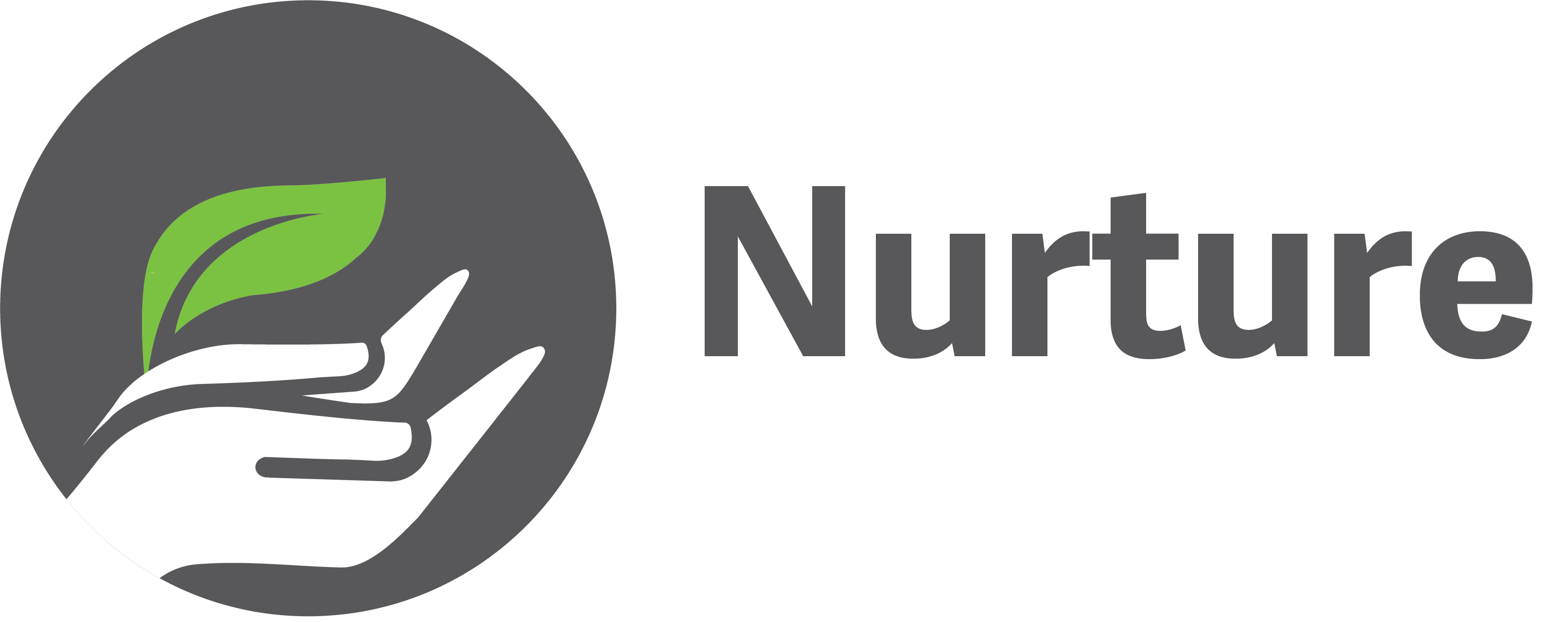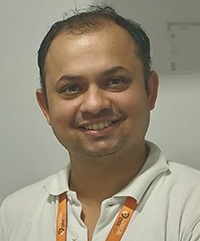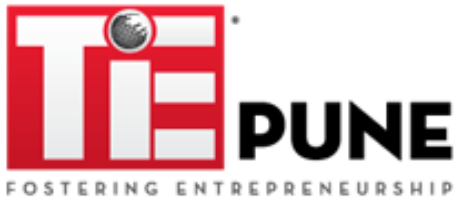
EDITION 13
Friday
August 6, 2021
HOW TO TACKLE COMPETITION?
Finally, you are in the market, the great referee that decides who will win and who will lose. You put in your best, work on a strategy that you are sure will win. But then come the other players offering the same product or service. Now your game gets tough. So, what do you do? Compete on price? Improve your product? Delivery? Increase marketing spends? What tactics do you employ to beat your competitor? And what has worked? Our members share their experience:

Amit Singh
When a new technology gets popular, there are many entrepreneurs who end up thinking of doing business using the same. So, when Amit Singh started Constems AI Systems P Ltd in 2017 with the idea of helping retailers with his AI technology solutions, he knew he was not the only one trying to get a slice of the customer pie.
Says he, “When the base is attractive, more people try to enter that market. But doing business is not about technology alone. It is about using technology to solve a real world problem.” And that is what Amit did to differentiate his product and get one up on his competitors.
“When we built our product, we never anticipated the variabilities on the ground. But as we moved on we got a clear understanding that if we have to have an edge on other players, we have to make our product adaptable to the customer’s needs and fast.”
With this understanding, Amit developed adaptability and speed into his offering. Says he, “Early on, I understood how a buyer looks at my product. While it is all great that AI can help them get better, there are specific needs that makes it impossible for a one size fits all narrative.”
Product differentiation helped Amit. “Track Retail, a Singapore based company, too provides the same service to the retail industry, but they too cannot be of any great help because adaptability to specific problems is the key.”

Nishant Kathpal
And sometimes a superior product would think be a natural winner, one would think. But for Nishant Kathpal who founded Ayati Devices that manufactures a portable medical device to help diagnose neuropathies, that alone did not work. Says he, “I worked at a camp where doctors in rural areas tried to pick out neuropathy in the feet of patients. The existing device uses electricity and the patient has to lie down, and power cuts in villages is a serious problem. So, we thought, why not work on this problem.” And they did.
After spending two years working on it, Nishant and his team had a portable battery operated device that could not only pick up Neuropathies but also grade them, record the data for further monitoring. Neuropathies are not a one-time event. They progress slowly and if a patient returns after three months for a check-up the doctor must know what the earlier readings were. Our device stores all patient data on the cloud, ready for the next reading.”
But better is not always enough. Says Nishant, “Our competitor has the money muscle. They sell about 15000 biothesiometer (that runs on electricity) every year and are well entrenched in the market.”
An issue that even Amit had to face. “When we started, we priced our product much higher, but we soon realised that competition was charging much less, and now we sell at 50% that cost.”
The matter was resolved for Constems but Ayat Devices had an old player who had more money and better reach in the market. So even if their product was priced much lower at Rs 33,500 against theirs that costs anywhere between Rs 50-75,000 they could not reach out to a large number of customers.
And that is where creative thinking helped Nishant. Says he, “we do not have huge marketing budgets or even to hire staff. So I thought, why not tap the retired pharma sales executives. I know that no one likes to sit at home post retirement. We approached three of them, who agreed to work on a commission basis. They had a network of past customers that could help our sales and because we paid them only when a sale was made, we didn’t have the stress of paying salaries.” So far, Ayati has managed to sell 250 devices in four months. A win-win for all.

Satyajeet Kunjeer
The magic of fintech has lured many an entrepreneur. And Satyajeet Kunjeer of Traustast P Ltd is one of them. He has built an app, deciml for micro financial investment, and has even done a beta run of it. “What deciml does is helps young people invest small amounts that can eventually add up to quite a bit.
Targeted at the 21-28 year olds, deciml rounds up their spends to the nearest 10. “So, if you buy coffee for say Rs 45 and make the payment digitally, deciml will round that Rs 45 to Rs 50 and appropriate Rs 5 into our investment program. Typically, this will go into Mutual Funds.”
Sounds cool! And like all entrepreneurs who get an idea, validate it, do the POC, test market it and then realise that ground realities are different from what they put on paper, Satyajeet too found out some realities. “There are 12 start-ups that are working on similar lines, the VCs and other investors informed me. And in a few months’ time they should be ready to launch.”
So, what happens then? In depth customer study will help, feels Satyajeet. “The younger generation is not very excited about saving. In the sense, they don’t mind the small change going off from their bank account, but simply saving for the sake of saving is not a big deal with them. In our heads, investing is for big things, so there is a disassociation to think of money from a short-term perspective. The concept that MFs push – invest as little as Rs 100 a month doesn’t go down well with the youngsters. So, we have now offered them goal-based investing.”
This translates into communicating with the target audience that if you wish to buy an iPhone you can do that with your spare change. “This way we see better traction. And more importantly, win over their trust. The fintech industry is about trust. No one will come to you for financial advice if they don’t trust you.”
Satyajeet is hopeful that when he is ready to launch his app deciml his understanding of his customers and his specifically designed product will win over that trust. And then he can lead them onto bigger investments.
As Amit puts it, “when you are in the market there are three things that impact your sales – one is how adaptable your product is to customers’ needs, two the cost and three one must have a complete know of the industry you are operating in.” And as Satyajeet has learnt, in depth understanding of customer habits.
TiE Nurture:
Worldwide, the success rate for start-ups is 10%. But at TiE Pune’s Nurture Accelerator program it is 39%. While our numbers tell their own story, we showcase here our mentees who tell how TiE helped their business.


Sagar Godbole
Sagar Godbole CEO Logical DNA (www.logicaldna.com) mentee gives his feedback on the Nurture Accelerator program:
What does your company do?
We work as digital transformation partners for the Livestock Industry by providing end to end technology framework including ERP and IoT solutions.
What made you join this program?
I ran a company for 13 years and sensed that I needed guidance / training for building strategy and leadership framework. I joined the Nurture program as I saw fantastic mentors who are not consultants, but leaders who have gone through this cycle and came out successful.
How has the Nurture Accelerator helped you?
I had seen the content which has been taught in Nurture earlier as well, but the mentors helped me put in my own context. This allowed me to apply these learnings practically. For example, I had gone through 5 forces analysis multiple times earlier, but sessions by Ravi had case studies and discussions which gave me a new perspective. It has helped me get a clarity of thoughts and a framework to run my company.
What were the three most important learnings?
All sessions were fantastic and very in detailed.
- Valuation and engagement sessions by Darshan – The entire process of valuation and what are different steps involved in an actual investment cycle were explained in detail. This was something which you will not get on Google.
- Effective networking by Vandana – I never went to any networking sessions and looked at them as a waste of time, but the way Vandana highlighted the use of effective networking with some great tips has helped me to get more out of myself and people I’m connected with.
- 5 forces analysis by Ravi – I knew this as a concept and I had analysed our product on these 5 forces framework, but after Ravi’s session I had a different perspective on a few of the questions. I immediately discussed this with my core team and now have aligned our strategy effectively
I would also like to mention a boot camp event where I could meet all the mentors and fellow Nurture members. It was great to know each other and share our experiences.
What’s your message to other founders?
Having a mentor is as crucial as having a good product, do not shy away from connecting with people who are happy to help. Platforms like TiE are an absolute boon for start-up founders.
Contact us if you have a story to tell: rashmi.ghosh@tiepune.org

